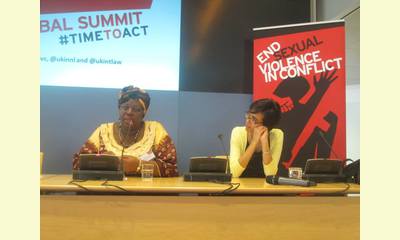|
|
The role of youth work: Employability, peacebuilding and gender in Europe and beyond
un articulo por Ana Afonso, CEIPES and UNOY Peacebuilders
After one year working on the subject of social
entrepreneurship, peacebuilding and gender it is
time now for UNOY Peacebuilders to make a
balance of what has been done and what has
been achieved so far. Hence the main purpose of
this article is to give a contribution and boost
youth work in terms of the mentioned subjects. 
click on photo to enlarge
The conclusions and recommendations hereby
suggested are a result of the project ‘Voices of
change: Employability, peacebuilding and gender
in Europe and beyond’, which foresaw the mobility
of a youth worker from CEIPES (Italy) to UNOY
Peacebuilders (Netherlands) with the aim to
exchange know-how and reinforce the
cooperation between the two partner
organisations. In the framework of this project the
youth worker collaborated in several of the
activities implemented by UNOY on the subjects
of youth employability, social entrepreneurship for
peacebuilding and gender equality.
Starting from a personal reflection on the
relevance of this type of mobility it can be said
that the experience was certainly meaningful and
my recommendation as the youth worker directly
involved would be to continue to finance this type
of long-term individual mobility. Differently from
the more common job shadowing experience,
which is shorter, a project of this kind allows for
so much to happen in terms of professional
development, intercultural experience, networking
and personal development. Naturally the
conditions for this to happen need to be put in
place, such as a good partnership and a serious
working plan that all parties respect and follow.
And as every project requires there should be a
constant monitoring and adjustment to new needs
and challenges.
Furthermore this project constitutes a real
contribution to the advancement and recognition
of youth work in Europe. Although this is often a
difficult dimension to evaluate, as it is quite
subjective and hard to grasp, I have decided to
address it in this article hopeful that my reflections
and conclusions might become useful to other
youth workers and those policy makers who are
interested to develop policies informed by youth
work practical experiences.
The most important dimension touched by this
project was the relevance of youth work to the
field of social entrepreneurship, with a special
focus on the peacebuilding and gender
dimensions. Social entrepreneurship is quite a
trendy concept nowadays and many youth
organisations in Europe have it as a strategic
priority in their annual working plans. Yet as youth
workers we should ask ourselves an important
question, that is ‘whether or not youth work has a
real role to play in this field and what kind of role
would that be?’.
To read the complete article follow this link.
|








|
DISCUSSION
Pregunta(s) relacionada(s) al artículo :
Social entrepreneurship, Can it help create a culture of peace?
* * * * *
Comentario más reciente:
:
Readers' comments are invited on this question and its article.

|
|









